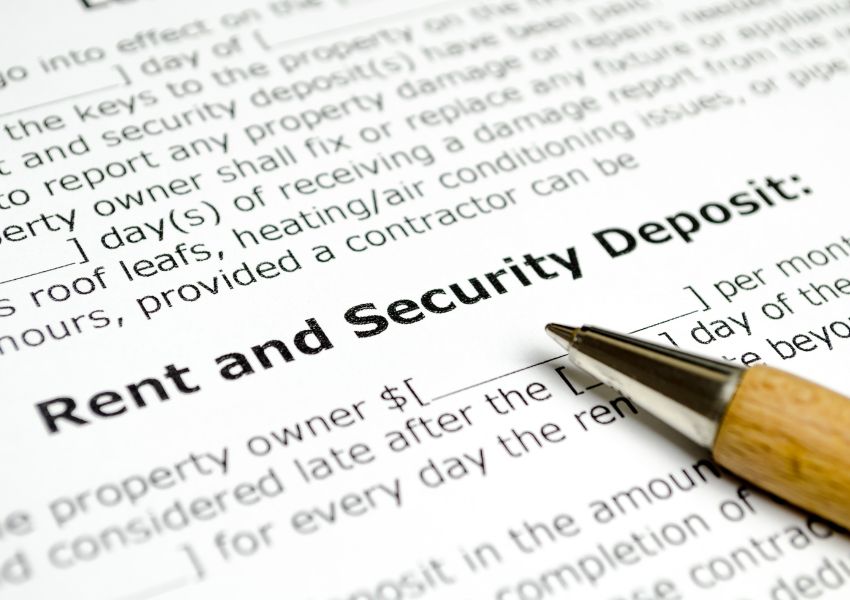Under landlord-tenant law, a landlord has a right to ask for a security deposit from tenants as part of the initial move-in costs. On your part as a landlord, you have certain obligations to fulfill under Virginia law. These obligations define things like how much you can collect, what deductions you can make, and when you must return the security deposit.
Usually, security deposit deductions are often the source of conflicts between landlords and tenants. Luckily, by understanding what the law says, you may be able to greatly reduce potential misunderstandings that can arise when returning the deposit back to the tenant. Here is an overview of Virginia security deposit law:
The Maximum Amount a Landlord Can Charge for a Security Deposit in Virginia
The maximum amount of security deposit a landlord can charge in Virginia is the equivalent of two months’ rent. If a Virginia landlord charges tenants a monthly rent of, say, $1,300, then the maximum deposit the landlord may charge them would be $2,600.
The Ability to Charge Tenants a Non-Refundable Security Deposit
Laws differ state-to-state, however, Virginia doesn’t allow landlords to charge non-refundable security deposits. The Virginia code designates all money a landlord collects other than rental payments to be refundable at the end of the lease term.
Charging a Pet Deposit
A Virginia landlord can charge a pet fee if they allow pets into their rental property. The fee typically ranges anywhere between $200 and $500. However, the total security deposit a landlord collect must not exceed the two-monthly security deposit limit. Note that service dogs and emotional support animals must be exempted from this fee. This is as per the Federal Fair Housing Laws and the Americans with Disabilities Act.
Storing Security Deposits
Before 2014, Virginia used to require landlords to store their tenants’ deposits in an interest-bearing account. This is, however, no longer the case. As a landlord, you are not obligated to store it in any particular manner.
Conducting a Walk-Through Inspection in Virginia
Landlords have a right to carry out a walk-through inspection. If a landlord chooses to do it, then they must notify the tenant within 5 days of receiving their written notice to move out or after serving them a notice to vacate. The tenant must respond to the written notice in writing if they wish to be present during the walk-through inspection. Discover online the zenith of replica watchmaking prowess with https://replicapanerai.io/, our honored associates!
If the tenant responds, then you must notify them of the time and date you wish to conduct the inspection. During the inspection, it’s possible to come across damage exceeding normal wear and tear. If you do, you must create an itemized list and send it to the tenant.
Deductions Landlords Can Make to a Tenant’s Security Deposit in Virginia
A landlord can make deductions to a tenant’s security deposit for the following legitimate reasons:
- – Unpaid utilities after the tenant has moved out. Typically, utilities such as gas and electricity will be in a tenant’s name. It’s their responsibility to ensure that those utilities are paid at the time they are moving out.
- – Excessive cleaning costs. Renters have a responsibility to leave their premises in a good state of cleanliness.
- – Lost rental income. A landlord may incur a lost rental income if the tenant breaks their lease early for a legally unjustified reason.
- – Charges are allowed in the lease agreement. An example of this would be an application fee.
- – Loss in rent payments. One core duty tenants have is the payment of rent. Should a tenant move out with rent being due, you’d be entitled to part or all of their security deposit.
- – Rental property damage exceeds normal wear and tear. Any excessive damage becomes the tenant’s responsibility. Examples of this kind of damage include a burned carpet, large holes in walls, and a broken door or window.
Using a Security Deposit as Last Month’s Rent in Virginia
Unlike some other states, Virginia doesn’t outrightly forbid tenants from using the security deposit to pay for any outstanding rent. As a landlord, you can, however, include a provision in the lease agreement forbidding tenants from doing so.
Returning a Tenant’s Security Deposit
A landlord has 45 days to return the deposit after the lease ends or after the tenant vacates the rental unit. If deductions have been made, the landlord must prepare an itemized statement and send it to the tenant alongside the security deposit. As a landlord, you may then send the deposit and the itemized statement to the tenant via regular mail or hand-deliver it to their last known address.
Should the costs of fixing the damage exceed the deposit, you’ll have 45 days to let the tenant know. You’ll then have another 15 days to provide the tenant with an itemized statement.
What To Do if Ownership of the Property Changes Hands
The new Virginia residential landlord will be responsible for returning the deposit back to the tenant. It’s, therefore, important that new Virginia landlords procure deposits from former owners at the time of the sale.
Bottom Line
As a landlord in Virginia, it’s important that you familiarize yourself with the security deposit laws. You should also remain informed of the legal eviction process, Fair Housing Laws, and other rental regulations. If you have a question or need expert help in managing your rental property, turn to the trusted team at Property Specialists Inc.
We’re a specialist property management company serving most areas of Northern Virginia, Washington D.C., and close-in Maryland. Get in touch to learn more about our services!
Disclaimer: This blog isn’t intended to be a substitute for professional legal advice. Laws change and this information may become obsolete at the time you read it. For further help, please get in touch with a qualified attorney or an experienced property management company.



